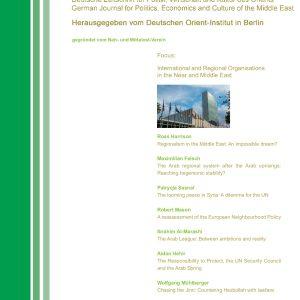Description
Current developments in the Gulf reflect a profound transformation in the structure of regional politics. The bipolar order that had maintained stability since the Second Gulf War of 1990-91 has transformed into a multipolar order in which Qatar, the United Arab Emirates, Iraq, and Turkey have the capacity and the incentive to pursue foreign policies that challenge the security interests of Saudi Arabia and Iran. This new arrangement increases the degree of uncertainty in Gulf affairs, and makes crises harder to manage effectively. Events surrounding the recent confrontation between Qatar and Saudi Arabia illustrate the dynamics of the shift to multipolarity.
Fred H. Lawson is Senior Fellow of the Centre for Syrian Studies at the University of St Andrews, UK. He is author of Global Security Watch Syria (Praeger, 2013) and co-editor of Armies and Insurgencies in the Arab Spring (University of Pennsylvania Press, 2016). In 2009-10, he was Visiting Fellow at the Center for International and Regional Studies, Georgetown University School of Foreign Service in Qatar.




Reviews
There are no reviews yet.